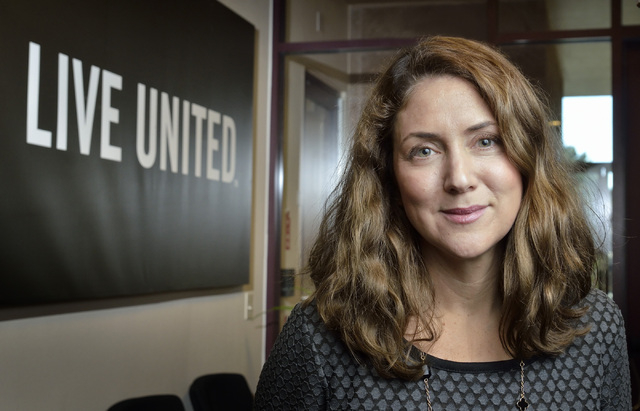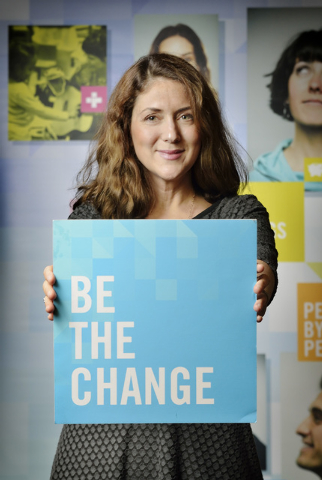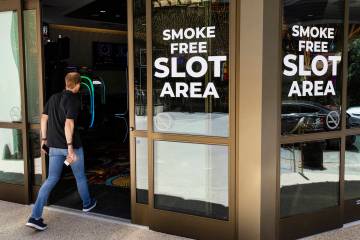Q&A with Vanessa Maniago
Vanessa Maniago’s role as vice president for branding and marketing at United Way includes overseeing advertising and public relations, brand management, and all internal and external communications for the nonprofit group.
The Baltimore native has more than 15 years of experience in advertising, consumer research, marketing and strategic planning, beginning with a large agency in New York City.
After moving to Las Vegas eight years ago, she served as vice president for strategic development at R&R Partners, and moved to United Way two years ago.
What campaigns are you working on?
When I joined United Way, I was charged with repositioning the organization’s brand and changing its public image. We needed an infusion of energy, a way to let people know that it’s not your father’s or grandfather’s United Way. Our “Faces of Change” advertising campaign features real people – real donors, real recipients, real staff members. It’s a level playing field, with these folks telling our story. I think the work defies some of the expected conventions of this kind of marketing, which typically focus only on aid recipients.
Can you explain what “behavior change” campaigns are, and why they appeal to you?
Behavior change campaigns’ success isn’t measured in widgets sold, but in how it’s changed deeply rooted beliefs so social transformation can take place. It’s complex work that requires a lot of research to understand the belief system of the consumer, so you can help change it. Some of the campaigns I’ve worked on promoted reading and wearing seat belts, and thinking differently about marijuana, underage drinking and bullying. I’ve been involved in many campaigns to sell “things,” but it is behavior change, which makes the world a better place, that makes me feel like I’m doing my part.
United Way currently focuses on education, health and financial stability. How are these three things interrelated?
One reason United Way appealed to me was the holistic nature of its work. We know, through years of research, that social challenges cannot be solved by one silver bullet, but rather by focusing on the true building blocks of a good life: health, education and financial stability. For example, without a quality preschool education, 4-year-old Delilah will fall behind her peers. She may not have access to preventive medical care, or may not even own a toothbrush. Her mom needs help with financial literacy like budgeting and managing credit wisely so their family can weather any storm. To ensure Delilah’s success, we need to provide solutions that work together to overcome all these challenges.
What do you think is the main challenge facing United Way?
There are so many good people in the community who want to volunteer or contribute. The overarching challenge (and opportunity) is to connect them with the right project, to align them with their passion. Our new online giving platform, The Giving Place, allows us to do that. People want to know where their money goes, so at www.uwsn.org/givingplace, instead of giving a lump sum, if you are concerned about health care, you can donate $150 to provide dental care for a child. And in January, we’re launching a new brochure called “Your Guide to Changing Lives,” which will show individuals and businesses where they can get involved throughout the year so they can schedule their volunteering.





























